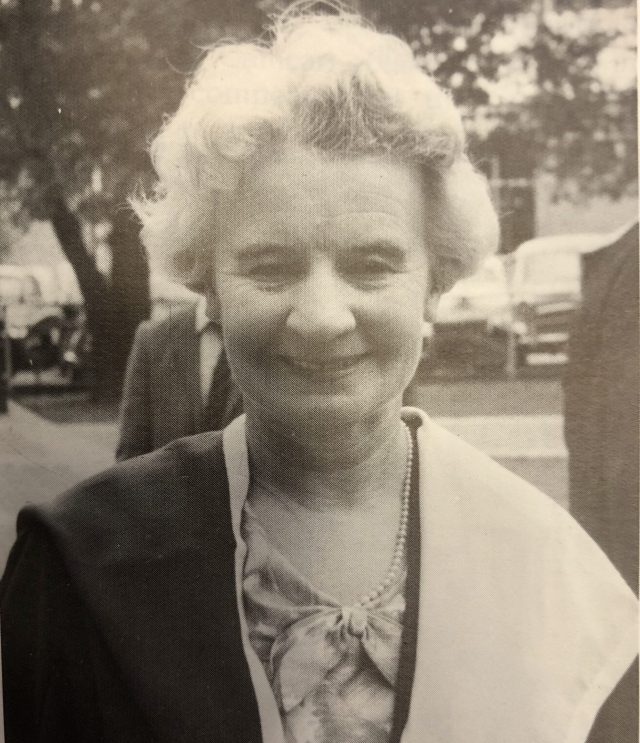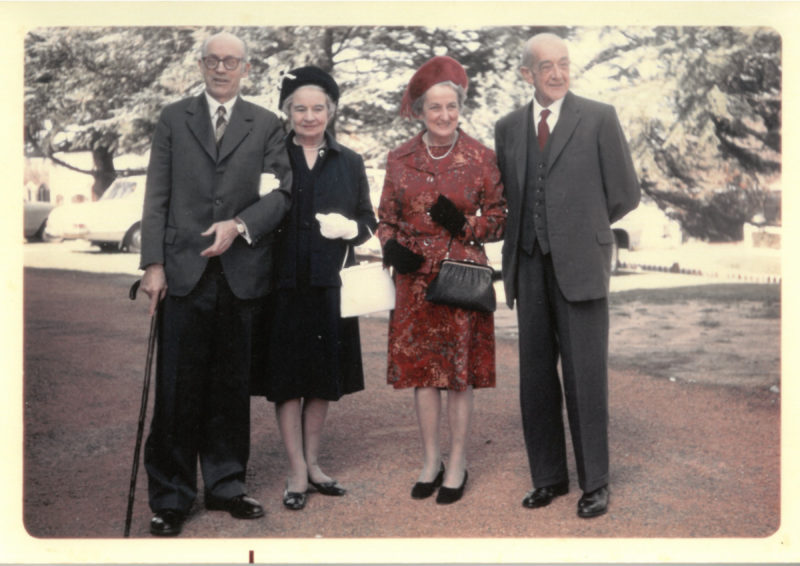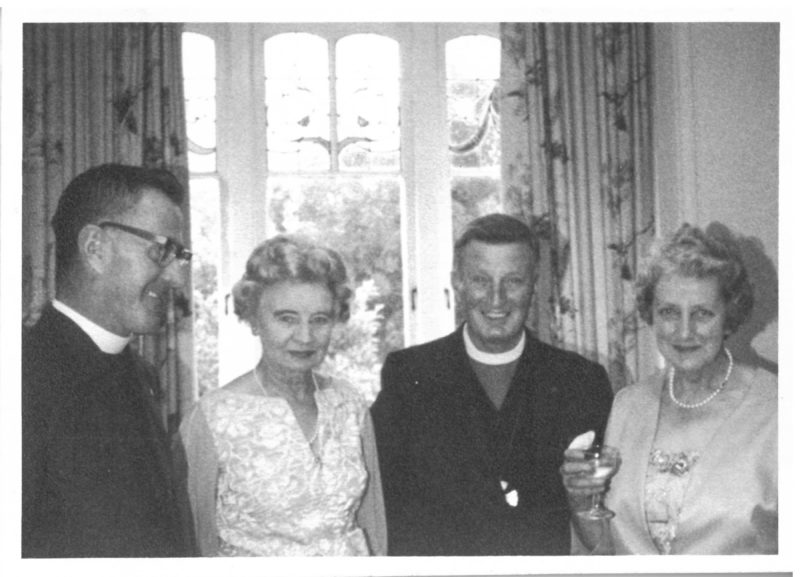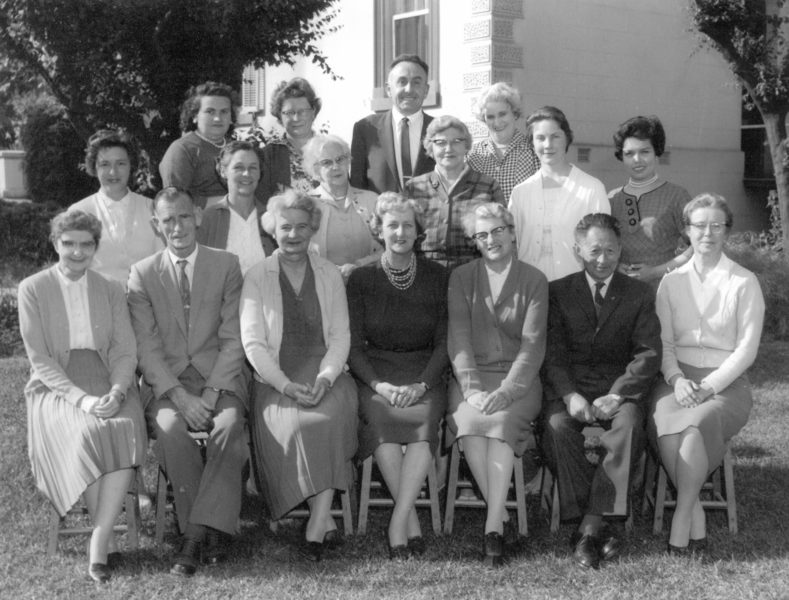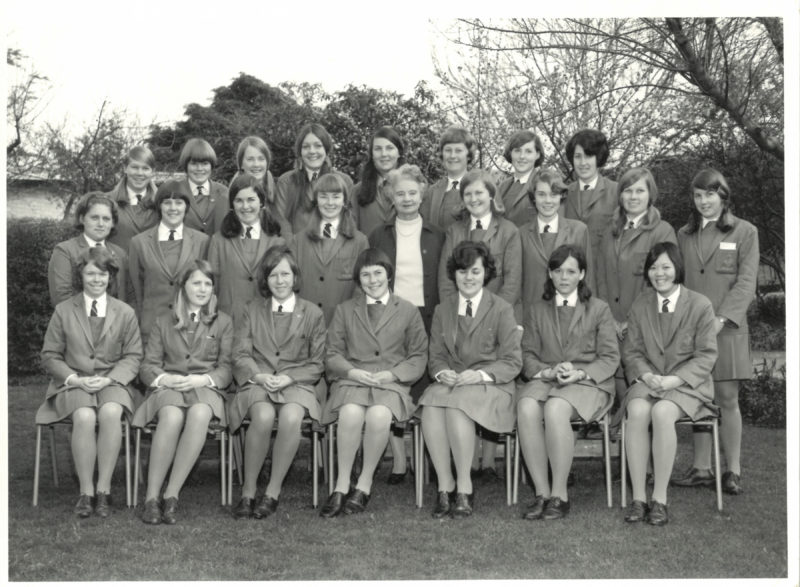Chief of Staff | 1967-1970 | Music Teacher | 1950-1966 | Girton CEGGS & Girton College
Though her name may not be widely known by students of the 21st century, every Girton Grammar School student has been touched by the legacy of Miss Winifred Batterham. Each week, assemblies echo with the Girton School Song—composed in 1968 by Pauline l’Anson and set to music by Miss Winifred Batterham.
An accomplished pianist, Miss Batterham first appears in Girton records in 1950. She served as accompanist to the School’s choirs, which won numerous competitions across Victoria, including the prestigious Dandenong Festival of Music and Art in 1953. That year, the Girton Choir of thirty-five girls, conducted by Miss Mavis Webster and accompanied by Miss Batterham, triumphed in the “sixteen years and under” choral section against a very large field of competitors.
Affectionately nicknamed “Bat” by students, she was best friends with Principal Miss Jean d’Helin, who was known as “Ding.” Together, “Ding and Bat” became legendary figures in the lives of Girton girls, remembered not only for their high standards but also for their warmth, encouragement, and humour. Former students often spoke of how much they owed to the support and inspiration of these two women during their formative years.
In 1955, amid debates about whether music teachers were “real teachers,” Miss Batterham took leave to study at the Melbourne Conservatorium of Music. She graduated with a Bachelor of Music and returned to Girton, later becoming Chief-of-Staff. In this role she combined her musical expertise with wisdom, compassion, and a flair for leadership.
 For generations of students, one unforgettable feature of her music room beneath Frew Hall was the painting of Beethoven that hung on the wall. Many girls recalled with amusement—and a little awe—how the composer’s eyes seemed to follow them across the room as they sang or rehearsed. That painting became a symbol of both discipline and inspiration, a quiet reminder of the musical standards Miss Batterham expected of her pupils.
For generations of students, one unforgettable feature of her music room beneath Frew Hall was the painting of Beethoven that hung on the wall. Many girls recalled with amusement—and a little awe—how the composer’s eyes seemed to follow them across the room as they sang or rehearsed. That painting became a symbol of both discipline and inspiration, a quiet reminder of the musical standards Miss Batterham expected of her pupils.
After twenty-four years of service, Miss Batterham retired at the end of 1970. Paying tribute, Miss d’Helin described her as “a very wise person of a warm generous nature who sees people and their needs. She has a wonderful imagination and artistic perception. She was a good English as well as music teacher. She had an enormous influence on the decisions which I made.”
At her farewell, Julie Williamson and Margaret Johnson captured the deep gratitude of students:
“Miss Batterham, throughout her years as Music Directress, has continually been a source of encouragement and enjoyment to both her choir members and music students. We wish her all the best and future happiness on her retirement and we thank her very sincerely for her wonderful enthusiasm and achievements which have resulted in the high standard of music and choral work within Girton.”
In her own words, written in The Girtonian, Miss Batterham said farewell:
“The time has come to say farewell. I thank the girls of Girton, past and present, for all the friendship and fun we have shared together. Thank you for twenty-four happy and satisfying years. I wish you all, all the very best. May your dearest hopes and dreams come true. Happy days – Au revoir.”
In retirement, Miss Batterham joined Miss d’Helin at “The Welkin” in Mount Macedon, where they continued to host Old Girtonians’ Association luncheons and maintain close ties with the School they had served so faithfully. They survived the devastating Ash Wednesday bushfires of 1983, their home one of the very few in Mount Macedon left standing.
Beyond Girton, Miss Batterham also made her mark on the wider community, notably by composing the music for The Song of Bendigo, the city’s centenary song.
Her legacy at Girton endures—in the School Song sung by every student, in the high standard of music and choral work she helped establish, and in the affectionate memories of those who knew “Bat” as both teacher and friend.

